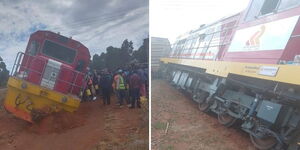The Ethics and Anti-Corruption Commission (EACC) on Friday, April 14, exposed 11 loopholes that county government workers use to loot public money.
EACC released the statement following the Corruption Risk Assessments (CRAs) undertaken in 26 counties.
According to the assessment signed by EACC CEO Twalib Mbarak, a major loophole that county workers exploit to steal public money was spending revenue at the source. The agency noted that some county governments authorised the spending of taxes at the point of collection.
Other counties were in the spotlight for using unauthorised staff and casual workers in revenue collection.
"CRA reports depict poor revenue administration across Kenya’s counties which compromises their full potential for revenue collection and prudent utilisation of the revenue," read part of the EACC statement.
In a statement that was copied to all County Governors, EACC noted that some counties lack legislation on revenue administration and revenue streams.
"Some counties charge varied fees for various services without the backing of an Act of Parliament or county legislation," read part of the EACC statement to all governors.
The commission also unmasked the counties for lack of a database of traders and businesses operating within counties to guide revenue collection.
The EACC report further indicated that the valuation roles in most counties were either not developed or are outdated
Revenue collectors in markets and car parks are not easily identifiable since they don't put on uniforms or name tags.
Some counties use manual systems of revenue collection which leads to leakage of revenue, non-receipting, issuance of non-official revenue receipts, and theft.
Other counties had cases of unnecessarily delayed banking of revenue and failure to prepare reconciliation reports of daily collections and banking.
Consequently, EACC issued a circular to all County Governments requiring them to take system reform measures to address threats to the success of devolution.
The initiative was part of the Commission’s efforts to proactively prevent corruption through the strengthening of internal controls.
"Addressing the identified gaps in revenue management will foster revenue growth in county governments and significantly mitigate their financial challenges," CEO Twalib Mburak stated in a press release.












